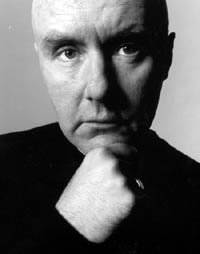Developing Characters
One of the best things about writing fiction is creating and developing new characters. Usually it’s not enough just to have a character talk and do things, as though totally scripted and predictable. It’s much more satisfying as a writer and for the reader, if the characters come alive on the page.
Everybody has their own foibles, small idiosyncrasies that most people never get to see. When developing a character, I like to create these wee things as well. Every minor thing a character does, be it the way they lift a glass or react when someone mentions travelling on a plane; every decision as to a character’s personality is a conscious one.
Well, most of the time it is. Some characters take over the reigns of deciding what is best for them and sometimes it’s just best to sit back and enjoy the ride. I like to let them do the talking and make the decisions; it’s good as a writer and usually it works out fine for the story.
But thinking up new characters isn’t always easy. I have two main sources of inspiration: magazines and the public.
In magazines or newspapers I look for pictures of people who look like they have a story to tell. It may be an elderly lady lying in hospital or a young thug arrested for breach of the peace, but they all have something to say, something written on their face that gives them depth, something that belies their behaviour, perhaps.
Very often these characters come to life in extraordinary ways, such as a simple news story or an advert for hair gel. Their name pops straight into my head and their background starts to unravel naturally. I write all this down and cut out their picture, then stick it away inside a folder for a day when I need that character. Sometimes they go straight into a story, but either way if they are interesting enough then when they are included in a story they will add something extra, something special to a work of fiction.
The second method is people watching. Simply sitting on a bus or in a crowded place can very often throw the most interesting people and conversations into your path. With a notebook and pencil handy, these people very often make it into my stories without ever knowing they were involved.
Guessing what they do for al living, how and where they live, who the people they are with (if any) are all interesting aspects that help build up a characters personality. As are how they wear their hair, their clothes and make-up or just the shape and colour of their eyes. Very often the rest just falls into place.
But there is an art to this. One can’t just sit staring at people in bars or trains. It would cause a stir and most likely the attention of the local constabulary. Some people don't like to be stared at, so it is useful to pretend to be doing something else.
People watching can have its upside though. While in a bar in Edinburgh I was people watching with a friend. There was a group of people at a table, a mixture of young males and females and they all made interesting characters, especially one girl. She was full of energy and seemed to be the soul of the group. She spotted me listening in and approached me. To cut a long story short I ended up having a relationship with her. It also turned out she was high up in the Scottish Parliamentary system, so I got a lot of research done for an as yet unwritten best-selling political thriller.

